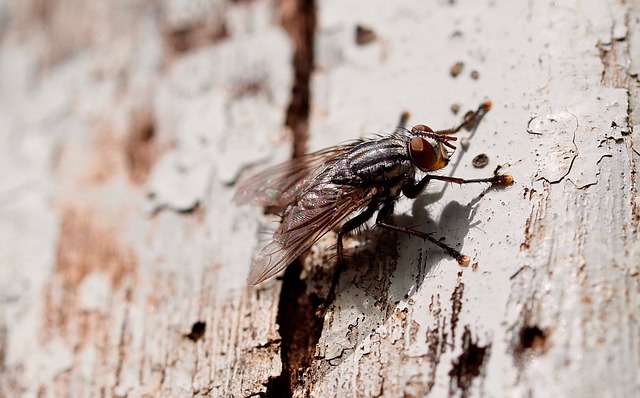Mosquitoes, beyond being nuisances, have complex behaviors and specific habitat needs, significantly impacting our lives and ecosystems. Effective, eco-conscious residential mosquito treatment requires understanding these factors. Targeted strategies can be developed by identifying breeding grounds, adapting to active periods, and using non-toxic repellents. Alternative methods like eliminating breeding grounds, plant-derived repellents, and natural predators are gaining popularity as sustainable options. Homeowners have various eco-friendly methods available, including natural repellents and mosquito traps. Community engagement is vital for implementing sustainable solutions through education and collaboration with local governments to preserve the environment while managing mosquito populations effectively.
In today’s world, effective mosquito management demands a balanced approach that considers both human well-being and environmental sustainability. This article explores humane and eco-conscious techniques to combat these persistent pests, delving into their behavior and habitat to inform strategic decisions. We compare traditional methods with greener alternatives, focusing on residential mosquito treatment options that prioritize safety and minimal ecological impact. Additionally, we discuss community engagement as a key driver for long-term solutions in mosquito control.
Understanding Mosquitoes: Behavior and Habitat
Mosquitoes are more than just a nuisance; they are complex creatures with distinct behaviors and habitats that play a significant role in their impact on our lives and ecosystems. Understanding these aspects is crucial for implementing effective, humane, and eco-conscious strategies for residential mosquito treatment. These insects thrive in stagnant water, making their breeding grounds readily identifiable. They prefer warm temperatures and often seek shelter in dense vegetation or dark, secluded areas. By identifying and eliminating these habitats, especially around homes and neighborhoods, you can significantly reduce mosquito populations.
Moreover, recognizing their behavior patterns helps in developing targeted strategies. Mosquitoes are primarily active during dawn and dusk but can adapt to human activities, making them a persistent problem. They are attracted to carbon dioxide, body heat, and certain chemicals present in perspiration. Knowledge of these behaviors allows for the use of repellents and other non-toxic methods that disrupt their ability to locate hosts, offering a more humane approach to residential mosquito treatment.
Traditional vs. Eco-Friendly Mosquito Control Methods
In the realm of mosquito management, traditional methods often involve chemical pesticides, which can have detrimental effects on both the environment and human health. These chemicals may provide short-term relief but do not address the root causes of mosquito breeding. As a result, many are turning to eco-conscious alternatives for residential mosquito treatment.
Eco-friendly mosquito control techniques focus on natural solutions and long-term prevention. This includes eliminating standing water where mosquitoes breed, using plant-based repellents, and implementing biological controls like introducing natural predators. These methods not only reduce environmental pollution but also foster a healthier living environment. For residential areas, such strategies offer a safer and more sustainable approach to managing mosquito populations without compromising the well-being of locals or local ecosystems.
Residential Mosquito Treatment Options: A Humane Approach
Many homeowners seek effective yet humane and eco-friendly solutions for managing mosquitoes in their outdoor spaces, especially with the growing awareness of environmental conservation. When it comes to residential mosquito treatment, there are several options that go beyond traditional chemical sprays. These methods not only reduce mosquito populations but also prioritize the well-being of non-target species and the overall ecosystem.
One popular approach is using natural repellents like citronella plants or essential oils derived from lemon eucalyptus. These organic compounds can deter mosquitoes naturally without causing harm to birds, beneficial insects, or pets. Another innovative technique involves utilizing mosquito traps that attract and capture mosquitoes using light and carbon dioxide, offering a silent and efficient solution for reducing mosquito activity around homes. Additionally, maintaining a well-managed landscape with proper drainage and removing standing water sources can significantly curb mosquito breeding grounds, providing a long-lasting, humane approach to residential mosquito treatment.
Community Engagement and Long-Term Solutions
Community engagement plays a vital role in implementing long-term, eco-conscious solutions for mosquito management in residential areas. Educating residents about the life cycle and habits of mosquitoes can foster a collective understanding and encourage responsible practices. By promoting simple measures like removing standing water, maintaining proper drainage, and using environmentally friendly repellents, communities can significantly reduce mosquito breeding grounds. This collaborative approach not only minimizes the need for chemical interventions but also fosters a healthier, more sustainable environment.
Furthermore, engaging local governments and community leaders is crucial for developing comprehensive strategies. Long-term solutions may include implementing natural predators like fish or birds that feed on mosquitoes in water bodies, using targeted, low-impact insecticides, and investing in better infrastructure to prevent water stagnation. These integrated pest management (IPM) approaches ensure effective mosquito control while minimizing the ecological footprint, making them ideal for residential mosquito treatment.
In light of the above discussions, it’s clear that humane and eco-conscious mosquito management is both feasible and essential. By understanding mosquito behavior and habitat, we can implement effective yet safe methods like residential mosquito treatment options and community engagement strategies. Adopting these practices not only minimizes environmental impact but also fosters a healthier, more sustainable living environment for all. In terms of residential mosquito treatment, it’s crucial to explore innovative, non-toxic solutions that protect communities without harming local ecosystems.
